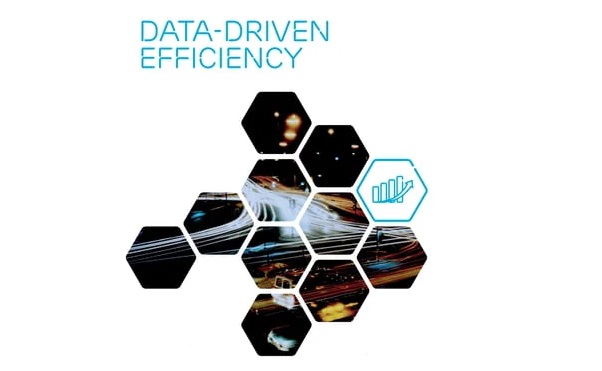In an increasingly complex global economy, supply chain analysts are the strategic minds ensuring that logistics systems operate at peak efficiency. These professionals are adept at transforming raw data into actionable insights, addressing bottlenecks, and optimizing supply chain processes to deliver cost savings and improved performance. With businesses more reliant on robust supply chains than ever before, the role of supply chain analysts has emerged as a cornerstone of operational excellence and strategic decision-making.
The Role of Supply Chain Analysts
Supply chain analysts serve as the data detectives of logistics operations, diving into vast datasets to uncover inefficiencies, predict future challenges, and recommend solutions. Their responsibilities span across multiple domains:
- Bottleneck Identification: Analysts scrutinize data to locate bottlenecks—points in the supply chain where delays or inefficiencies slow operations. Whether it’s a recurring delay in a transportation route or a warehouse with insufficient capacity, identifying these problem areas is key to streamlining processes.
- Logistics Optimization: By analyzing transportation routes, inventory levels, and supplier performance, analysts develop strategies to optimize logistics operations. This may involve rerouting shipments, adjusting inventory stocking levels, or consolidating suppliers to reduce costs and improve efficiency.
- Cost Efficiency: Supply chain analysts focus heavily on cost management. Through data analysis, they uncover inefficiencies such as excessive transportation costs, underutilized warehouse space, or supplier overcharges, offering solutions that directly impact the bottom line.
- Performance Metrics Analysis: Using data from shipping manifests, inventory records, and supplier contracts, analysts evaluate the performance of various supply chain components. Metrics such as on-time delivery rates, order accuracy, and transportation costs are benchmarked to ensure that service levels meet or exceed expectations.
- Forecasting and Demand Planning: Supply chain analysts also use predictive analytics to anticipate future demand and align supply chain operations accordingly. This helps avoid stockouts or overstock scenarios, ensuring that resources are allocated efficiently.
Challenges in the Role of Supply Chain Analysts
Despite their critical importance, supply chain analysts face a number of challenges in their roles:
- Data Silos: Information is often stored in fragmented systems, making it difficult to access, consolidate, and analyze in real time.
- Data Quality: Inconsistent, incomplete, or erroneous data can undermine analysis. Analysts frequently spend significant time cleaning and standardizing data before they can even begin their work.
- Rapidly Changing Conditions: Global supply chains are affected by a myriad of unpredictable factors such as geopolitical events, natural disasters, and market fluctuations. Analysts must adapt quickly to these changes, making real-time adjustments to their strategies.
- Technological Complexity: As supply chain systems become more advanced, analysts must navigate increasingly complex technologies, tools, and platforms, requiring constant upskilling.
- Balancing Speed and Accuracy: In a fast-paced environment, analysts must deliver insights quickly without compromising on accuracy, a balancing act that can be difficult to achieve without the right tools.
How ChimpKey Transforms Supply Chain Analysis
ChimpKey addresses many of the challenges faced by supply chain analysts by automating and streamlining data processes. The tool ensures that analysts receive clean, standardized data, eliminating the time-intensive task of manual data cleanup. Key benefits include:
- Data Standardization and Automation: ChimpKey digitizes and extracts information from supply chain documents—such as shipping manifests, inventory records, and purchase orders—and converts them into standardized formats. This allows analysts to work with accurate, consistent data, speeding up analysis and reducing errors.
- Real-Time Data Integration: By automating data entry and integration into supply chain management systems, ChimpKey ensures that analysts have access to real-time data. This is crucial for making timely and informed decisions in dynamic supply chain environments.
- Streamlined Workflow: With ChimpKey, analysts can quickly aggregate and analyze large volumes of data, identifying patterns and trends that would otherwise be difficult to discern. For example, they can use the tool to pinpoint recurring delays in specific transportation routes or uncover inefficiencies in supplier performance.
- Enhanced Insights: Accurate and well-organized data enables analysts to focus on generating actionable insights rather than spending time reconciling discrepancies. This enhances their ability to optimize transportation methods, evaluate supplier contracts, and refine inventory strategies.
- Scalability: As supply chains grow in complexity, ChimpKey scales to meet the increased data demands, providing consistent support for high-volume operations.
Strategic Impact of Supply Chain Analysts
The insights generated by supply chain analysts have far-reaching implications for businesses:
- Operational Efficiency: By identifying inefficiencies and streamlining operations, analysts help reduce lead times, minimize waste, and improve service levels.
- Cost Savings: Their focus on cost management leads to significant savings across transportation, warehousing, and procurement functions, directly impacting the organization’s profitability.
- Risk Mitigation: Analysts help businesses anticipate and mitigate risks, such as supplier failures or transportation disruptions, ensuring that operations remain resilient in the face of challenges.
- Customer Satisfaction: Optimized supply chains lead to improved delivery times, order accuracy, and overall service quality, enhancing customer satisfaction and loyalty.
- Sustainability Goals: Analysts play a role in supporting sustainability initiatives by identifying opportunities to reduce energy consumption, optimize routes, and implement greener logistics practices.
Conclusion
Supply chain analysts are indispensable in the modern logistics landscape, turning raw data into actionable strategies that drive efficiency, cost savings, and competitive advantage. With tools like ChimpKey, these professionals are empowered to focus on higher-value tasks, leveraging clean and accurate data to deliver transformative insights. As supply chains continue to evolve, the role of supply chain analysts will only grow in importance, shaping the future of global commerce through innovation and precision.
Contact ChimpKey for your Free Proof-Of-Concept – No Commitment required.
Talk to a Human: +1-604-359-9377 or +1-888-373-1365
Website: https://chimpkey.com
Email a Human (please attach a PDF if possible ): sales@chimpkey.com
Or get in touch with us through our contact form:

